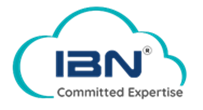- What is ISO/IEC 20000? ISO/IEC 20000 is the international standard for IT Service Management. It provides a framework for the effective delivery of IT services to meet the needs of an organization and its customers.
- What is the purpose of ISO/IEC 20000? The primary purpose of ISO/IEC 20000 is to ensure that an organization's IT service management processes are aligned with business goals, customer requirements, and international best practices. It promotes the adoption of an integrated process approach to deliver high-quality IT services.
- Who can benefit from implementing ISO/IEC 20000? ISO/IEC 20000 is applicable to any organization, regardless of its size or industry, that wants to establish, implement, maintain, and continually improve an IT service management system.
- What are the key components of ISO/IEC 20000? The standard consists of several key parts, including service management system requirements, guidance on the application of service management systems, and processes for service delivery and relationship management.
- How does ISO/IEC 20000 certification work? Organizations seeking certification undergo an assessment process conducted by accredited certification bodies. This process includes a review of documentation, an on-site audit, and, if successful, the organization is issued an ISO/IEC 20000 certificate.
- What are the benefits of ISO/IEC 20000 certification? Some benefits include improved service quality, better alignment of IT services with business objectives, enhanced customer satisfaction, and a framework for continual improvement of IT service management processes.
- How does ISO/IEC 20000 relate to other standards? ISO/IEC 20000 aligns with the Information Technology Infrastructure Library (ITIL), which is a set of practices for IT service management. Organizations often use ISO/IEC 20000 in conjunction with ITIL to improve their IT service management capabilities.
- How often does an organization need to be recertified for ISO/IEC 20000? ISO/IEC 20000 certification requires regular surveillance audits to ensure ongoing compliance and effectiveness. The frequency of these audits depends on the certification body and the organization's specific circumstances.
Knowledgebase
- 26 Users Found This Useful

